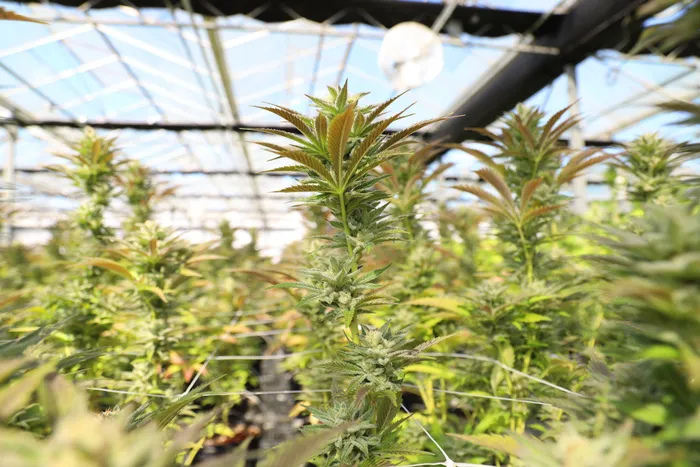
The KwaZulu-Natal government is launching a Shared Cannabis Processing Facility to boost opportunities in the sector.
Image: Pexels
With grim employment statistics released yesterday, a new cannabis initiative in KwaZulu-Natal aims to unlock job opportunities, especially in rural parts of the province.
The Department of Economic Development, Tourism and Environmental Affairs (Edtea) has recently detailed its plans for the sector, including a partnership aimed at piloting a Shared Cannabis Processing Facility.
This project is critical, with at least one municipality, the Okhahlamba (Bergville) Municipality, hinging its hopes on it to address unemployment and boost the municipality's budget. The central focus of the project is processing cannabis into various products.
Addressing unemployment needs urgent attention as Statistics South Africa's latest quarterly labour force survey, which was released yesterday, indicated that the unemployment rate has increased by one percentage point from 31.9% in the last quarter of last year to 32.9% this year.
Musa Zondi, the MEC for Edtea, stated that the industry presents an opportunity to enhance the rural economy. Edtea's rural economy strategy includes the formalisation and expansion of the cannabis and hemp sector, not as a side project, but as part of a centrally focused legitimate industrial activity.
“In this regard, we are piloting a Shared Cannabis Processing Facility in Bergville, in partnership with the Council for Scientific and Industrial Research (CSIR) and Industrial Development Corporation (IDC). This initiative will support oil and fibre production and incubate small growers, ensuring traditional producers enter the value chain meaningfully,” Zondi remarked recently.
Okhahlamba mayor Vikizitha Mlotshwa expressed pride in their cannabis growing operation, stating it is “excellent” and unique compared to other parts of the country. He mentioned that they have identified a facility in the area that could be used as a processing site. They have received one machine needed to process cannabis into other products and are waiting for an expert to service and assemble the machine while they work on acquiring a larger machine to process bigger volumes.
“We have received support from Edtea and other organisations. We hope to raise up to R10 million in funding in the coming months to invest in the project,” he said. “This project started slowly; we planted, harvested, and then hosted an exhibition where many government officials came to see our progress. Edtea was one of the departments that were impressed with what they saw and committed to investing. Other entities have pledged about R5 million already.”
He explained that the aim is to have the capacity to process their products. “We want to produce about 400 products from cannabis, ranging from bath soap to lotion. We do not want to sell our product as raw material, as it yields little profit. Currently, we harvest and sell at low prices to someone who then makes real products and sells those for substantial profits.”
The mayor noted that if the project works as anticipated, it could be a windfall for the youth and the municipality.
“Currently, we are facing youth unemployment close to 35%. If we launch this well, we could create jobs and reduce this to around 10%.”
“This could also be a significant boost for the municipality. We currently have a budget of R266 million, and with this project, our projections show that this could grow to nearly a billion due to the value chain that will be created,” he added.
The project has been welcomed by Edtea committee members. Hannah Lidgett, DA MPL and spokesperson on Edtea, expressed support for the proposal, stating that the industry has immense potential.
“The hemp and cannabis sector could be a significant source of revenue and job creation in KZN. The shared cannabis processing facility is a fantastic project, but it must get off the ground as soon as possible. It is a step in the right direction, but we could create far more opportunities,” she said.
“The government needs to provide the support and enabling regulatory environment to allow this sector to grow. Many communities, especially in rural areas, could benefit. However, we need a comprehensive plan. I have submitted written questions to Edtea requesting whether the department has conducted research into the sector and the potential revenue and jobs it could create, as well as the plan to develop this sector given its enormous potential,” she stated.
Chairperson of the Edtea committee, Mafika Mndebele, remarked that the announcement by the MEC to establish a shared cannabis processing facility in Bergville is a bold and progressive step toward unlocking the full economic potential of the rural economy. “This initiative is not just about industrialisation—it’s about localisation, beneficiation, and empowerment. Cannabis has long been part of traditional livelihoods in many rural areas. By formalising and processing it locally, we create a sustainable value chain that ensures communities are not just producers but participants in the entire economic ecosystem—from cultivation to commercial products.”
“The shared nature of the facility also promotes inclusive participation by cooperatives, small farmers, and youth-led enterprises—creating jobs, stimulating entrepreneurship, and contributing to local revenue,” he added. “As the Committee, we will ensure there is strong oversight to avoid gatekeeping and ensure that this project becomes a model of rural industrial development, with broad-based participation and tangible benefits for the people of Bergville and the province at large," the chairperson concluded.